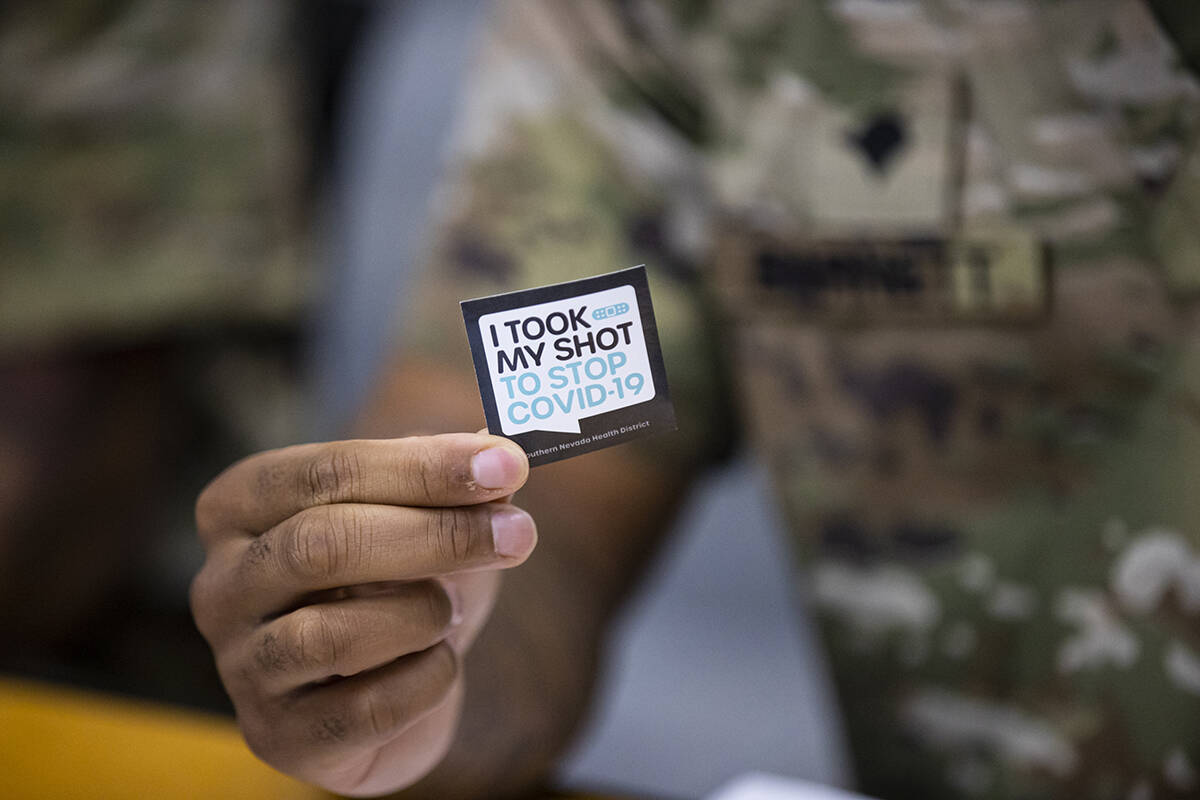COVID-19 hospitalizations jump in Clark County; other metrics mixed

COVID-19 hospitalizations took an unexpected jump in Clark County on Wednesday, even as the Nevada Hospital Association declared that the current surge of the disease “has peaked and has crested” in the state as a whole.
The number of people hospitalized with confirmed or suspected cases of COVID-19 in the county increased by 36, jumping from 608 on Tuesday to 644, according to data from the state Department of Health and Human Services. That is the highest daily number reported since Sept. 29, when 661 COVID-19 patients were occupying beds in county hospitals.
The figure has been declining slowly but fairly steadily from its recent high of 1,168 on Aug. 10 before flattening over the past week. It remains 44 percent below the peak of the recent surge, however, according to the state data.
Other COVID-19 metrics for the county were mixed.
Updated figures posted by the Southern Nevada Health District showed 429 new cases and 24 deaths occurred during the preceding day, pushing totals for the county to 322,953 cases and 5,701 deaths.
New cases continue to fall
While new cases were again higher than the two-week moving average of 373 per day, the average itself continued its recent downward trend by dropping from 383 reported on Tuesday. The two-week moving average of fatalities in the county held steady at six.
The county’s 14-day test positivity rate, which tracks the percentage of people tested for COVID-19 who are found to be infected, was unchanged at 6.7 percent.
The state, meanwhile, reported 669 new COVID-19 cases and 25 deaths over the preceding day. That brought totals to 424,995 cases and 7,246 deaths.
Nevada’s 14-day moving average of new cases also declined, dropping to 620 per day from 649 on Tuesday. The two-week average for fatalities, however, rose from 11 to 12 per day.
State and county health agencies often redistribute daily data after it is reported to better reflect the date of death or onset of symptoms, which is why the moving-average trend lines frequently differ from daily reports and are considered better indicators of the direction of the outbreak.
Washoe County in Northern Nevada, which was hard hit recently by the surge driven by the delta variant, is now seeing marked improvements, though hospital intensive care units remain stressed, county health officer Kevin Dick said at a news briefing on Wednesday.
“While the number that are hospitalized has gone down significantly, the number that are in the ICU and the percentage of the ICU that’s for COVID utilization has not gone down as quickly as the overall number of cases. So we’re still seeing a fairly high number of COVID patients that are remaining in ICU.”
State past the peak of the surge
While the hospital association declared in its weekly update that the summer COVID-19 surge that hit the state is receding, it also referenced staffing concerns that have affected rural Nevada hospitals and forced them to send patients to hospitals in Clark County.
“Rural Nevada continues to be hard hit, with most staffed rural ICU beds at 100 percent occupancy,” the trade group said. “All-cause occupancy rates (staffed beds) in the northern region are also near 100 percent, which has rural hospitals deviating from their normal transfer patterns, sending patients into the Clark County region.”
Of the state’s other closely watched metrics, the two-week test positivity rate declined 0.1 percentage points to 8.5 percent, while the number of people in Nevada hospitalized with confirmed or suspected COVID-19 cases rose to 883, 34 more than on Tuesday. That figure also has been falling since late August.
As of Wednesday’s report, state data show that 54.42 percent of Nevadans 12 and older had been fully vaccinated, compared to 53.64 percent in Clark County. That number dropped on Monday because the state updated its vaccination information to remove doses administered to out-of-state residents and make other adjustments.
Contact Jonah Dylan at jdylan@reviewjournal.com. Follow @TheJonahDylan on Twitter.